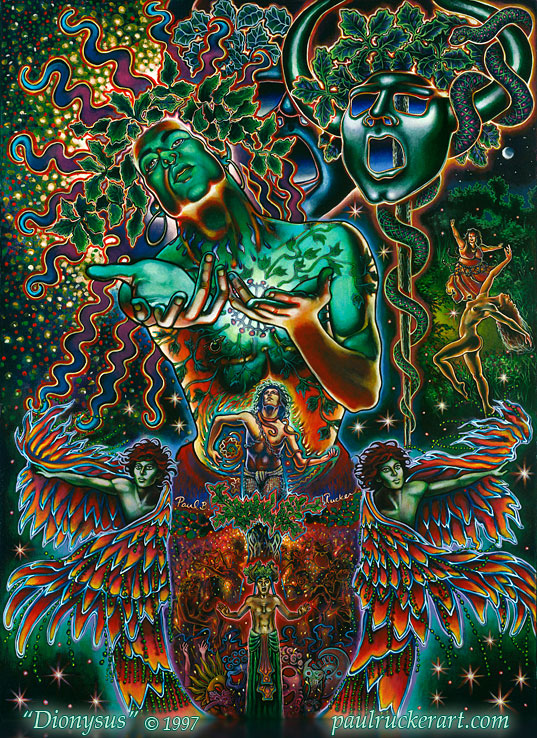
Dionysus (1997)
Above all, for me, he is the God of Ecstasy– of the wild surmounting of one’s small self in the fierce dance of Godly energies. He is one of the few Gods in the Greek pantheon whom a worshipper could actually become in trance, thus he signifies a human link with the divine.
God of the wild women (maenads), of wine and revelry, of theater and masks, of mirrors and their shattering, he is called the “Lord of telesmic {talismanic] madness”– hinting at the wildness hidden within mere things, which waits for the perfect moment to inspire “greater, and greater life.”
The tattoo of vines and the circle over his heart refer to the Orphic myth of his first incarnation as Zagreus, slain by the Titans and (unknowingly) devoured by the Gods; only his heart remained, from which he was reborn. He is a God who dies, torn apart, and who is born again: immortal, and enduring, as is the soul itself.